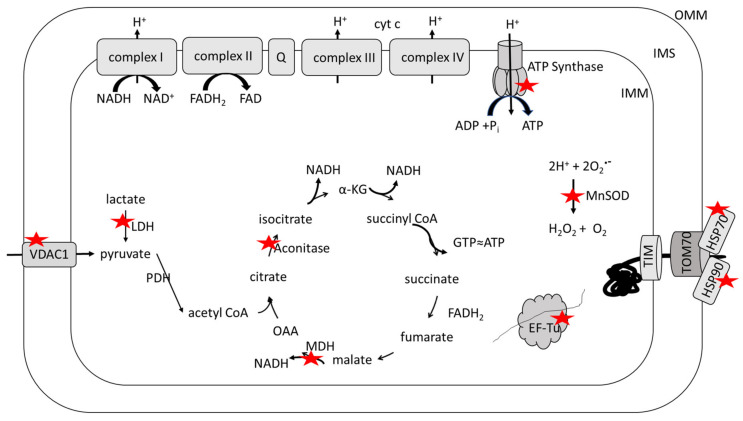Figure 3.
Redox proteomics identified oxidatively modified, mitochondrial proteins in brains from persons with Alzheimer disease or amnestic mild cognitive impairment. Proteins marked with a red star are oxidatively modified. Functional classes of oxidatively dysfunctional proteins include those related to: Glucose metabolism, i.e., lactate dehydrogenase (LDH), aconitase, malate dehydrogenase (MDH), ATP synthase; Export of anions (ATP, for example, has a decreased chance of export through voltage-dependent anion channel 1 (VDAC1) to drive neuronal function including the maintenance of mitochondrial potential); Free radical scavenging (MnSOD, which increases opportunities to cause further oxidative and nitrosative damage to mitochondria); mitochondrial protein synthesis (EF-Tu, which would lead to altered levels of key proteins needed to assemble into functional inner membrane resident electron transport complexes and thereby decrease ATP levels); and chaperone and transport function for the import of nuclear-encoded proteins into mitochondria (heat shock protein 70 (HSP70); heat shock protein 90 (HSP90), which also could contribute to altered protein levels of needed electron transport chain [(ETC) complexes and other key proteins]. See text for further details.

